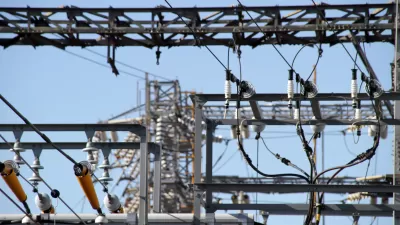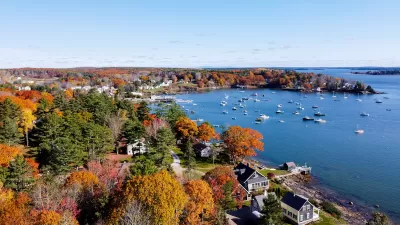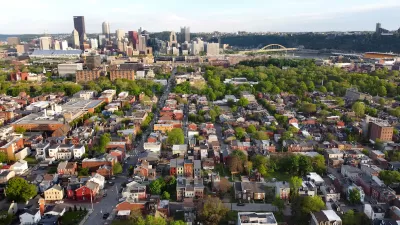In the next few decades, U.S. governments and businesses are predicted to spend trillions of dollars on infrastructure. This is the reality. The question is: how do we get smart about these investments?

Infrastructure—for many people it’s a boring word. But if the power goes out, traffic is snarled, the water faucet runs dry, or the toilet won’t flush—even for just a couple of days—the vital importance of our infrastructure systems can suddenly come into focus.
The United States will need to spend over $3 trillion on infrastructure in the next decade just to keep our nation’s vital systems, like energy, transportation, water, and waste, in working order, according to experts. Will we spend that money wisely, investing in creative new approaches and sustainable innovation which will be better for the environment and more affordable?
The Evergreen State College has launched the Center for Sustainable Infrastructure (CSI) with a goal of developing innovative solutions to these massive public works challenges. Based at the college’s Olympia campus, the Center links regional innovators, advocates sustainable best practices, and develops skilled professionals who will put these principles to work in infrastructure development.
The Center envisions a future for the region where sustainable, resilient, and affordable infrastructure systems provide vital services accessible to all, supporting healthy, prosperous, beautiful, and cohesive communities. But a shift of this magnitude will be not be easy. A wide range of professions have a role to play, from the leaders of infrastructure agencies and utilities, to community planners and elected officials, builders and design teams, engineers and technology firms, financiers and lenders, advocates and regulators. The Center aims to develop tools and programs that will prove useful to them as they help Northwest communities transform how they think about, plan for, and invest in their infrastructure assets.
The CSI's new report, Infrastructure Crisis, Sustainable Solutions: Rethinking Our Infrastructure Investment Strategies distills the insights from 70 of the Pacific Northwest’s top infrastructure innovators and thought leaders to discover how we can best transform the way we invest in these vital systems.
FULL STORY: Infrastructure Crisis, Sustainable Solutions: Rethinking Our Infrastructure Investment Strategies

Maui's Vacation Rental Debate Turns Ugly
Verbal attacks, misinformation campaigns and fistfights plague a high-stakes debate to convert thousands of vacation rentals into long-term housing.

Planetizen Federal Action Tracker
A weekly monitor of how Trump’s orders and actions are impacting planners and planning in America.

In Urban Planning, AI Prompting Could be the New Design Thinking
Creativity has long been key to great urban design. What if we see AI as our new creative partner?

Massachusetts Budget Helps Close MBTA Budget Gap
The budget signed by Gov. Maura Healey includes $470 million in MBTA funding for the next fiscal year.

Milwaukee Launches Vision Zero Plan
Seven years after the city signed its Complete Streets Policy, the city is doubling down on its efforts to eliminate traffic deaths.

Portland Raises Parking Fees to Pay for Street Maintenance
The city is struggling to bridge a massive budget gap at the Bureau of Transportation, which largely depleted its reserves during the Civd-19 pandemic.
Urban Design for Planners 1: Software Tools
This six-course series explores essential urban design concepts using open source software and equips planners with the tools they need to participate fully in the urban design process.
Planning for Universal Design
Learn the tools for implementing Universal Design in planning regulations.
Gallatin County Department of Planning & Community Development
Heyer Gruel & Associates PA
JM Goldson LLC
City of Camden Redevelopment Agency
City of Astoria
Transportation Research & Education Center (TREC) at Portland State University
Jefferson Parish Government
Camden Redevelopment Agency
City of Claremont





























